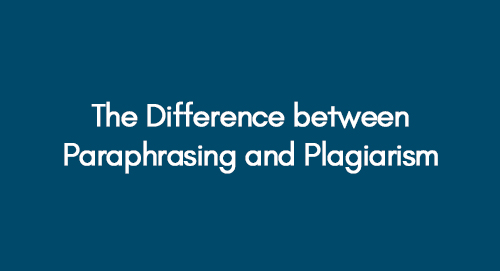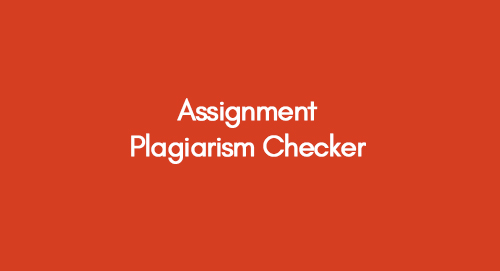
How Plagiarism Checkers Work? An In-Depth Look at the Technology
September 9, 2022
The Difference Between Paraphrasing and Plagiarism
September 9, 2022Mastering proper source citations is vital to prevent plagiarism in academic writing. By giving credit to original authors, you avoid mistakenly claiming their work as your own. Using techniques like in-text citations or bibliographies consistently maintains academic integrity.
Introduction
When you are writing a paper, it is important to cite any sources that you consult in your research. This includes both direct quotes and paraphrases of ideas from other sources.
Citing sources is important for two main reasons:
- To give credit to the original authors
- To help readers find the same or similar sources
If you do not cite the sources that you consult, you are committing plagiarism. Plagiarism is a form of academic dishonesty and can result in serious consequences, including a failing grade on your paper and suspension from school.
Review Free Online Plagiarism Checker for Students
There are many different ways to cite sources, but the most common format for citing sources in academic writing is the MLA format. In this guide, we will show you how to properly cite sources in MLA format to avoid plagiarism.
Free Online Plagiarism Checker For Students
We will email you the report within 24 hours.
Upload your file for free plagiarism

The text below discusses the importance of citing sources and guides when and how to do so.
How to Cite Sources in MLA Format
To cite a source in MLA format, you need to include two pieces of information:
- The name of the author
- The page number (if available)
For example:
Smith argues that “plagiarism is a form of academic dishonesty” (5).
In this example, we are citing page 5 of Smith’s article. If the page number is not available, you can omit it from the citation.
When to Cite Sources
There are three main instances when you need to cite a source:
- When you use a direct quote from another source
- When you paraphrase an idea from another source
- When you use data or information from another source
If you are unsure whether or not you need to cite a source, ask your professor or TA. They will be able to tell you whether or not you need to cite a particular source.
The following text pertains to the topic of avoiding plagiarism.
How to Avoid Plagiarism
There are several steps you can take to avoid plagiarism in your work.
Understand What Plagiarism is and How to Avoid It
Plagiarism is the unauthorized use or close imitation of the language and thoughts of another author and the representation of them as one's original work. Plagiarism is considered a form of cheating and is usually punishable by academic institutions. To avoid plagiarism, it is important to give credit where it is due by citing sources. When in doubt, it is always best to consult with a professor or tutor before turning in a paper.
Additionally, there are several resources available online that can help to prevent plagiarism, such as citation generators and plagiarism checkers. By taking the time to understand what plagiarism is and how to avoid it, students can ensure that they are submitting original work.
When Researching, Take Careful Notes and Record the Sources for All of Your Information
If you're like most professional writers, you know that good research is essential to producing a quality article, paper, or book. But even if you're an experienced researcher, it's still important to take care when taking notes and recording sources. After all, you don't want to waste time tracking down a source only to find that you've misstated the author's name or the date of publication. To avoid such problems, it's helpful to use a consistent system for taking notes and recording sources.
For example, you might create a separate document for each source, with the source information at the top of the page and your notes below. Or you might use a notebook and create a new section for each source, again with the source information at the top of the page. Whichever system you choose, the important thing is to be consistent and make sure that all of your information is accurate. With careful note-taking, you can be confident that your research will help you produce professional-quality writing.
Use Quotation Marks When Quoting Directly from a Source
When you are writing a paper, it is important to include information from sources. To show that you are quoting directly from a source, you will use quotation marks. For example, the author writes, "I am writing a paper." When you are quoting someone else's work, you will also use quotation marks. For example, the author writes, "The author says, 'I am writing a paper.'" If you are quoting more than three lines of text, then you will need to use a block quote. A block quote is a section of text that is set off from the rest of the text. To create a block quote, you will indent the quoted text and not use quotation marks.
For example:
The author writes:
"I am writing a paper. This is how you quote text."
When you are using a block quote, make sure to introduce the quote before adding it. You can also add commentary after the quote to help explain its significance. Remember to cite your sources so that your readers can find the original source if they want to read more.
Paraphrase Information from Sources Rather than Copying It Verbatim
One of the most important skills for a student to master is how to paraphrase information from sources. When you are writing a paper, it is important to use information from other sources to support your argument. However, simply copying and pasting large sections of text from these sources is not an effective way to use them. Not only does it make your paper less original, but it also makes it more likely that you will be accused of plagiarism.
To avoid these problems, you should learn how to paraphrase information from sources. This means taking the basic idea of a passage and rewriting it in your own words. This can be a challenging skill to master, but it is well worth the effort. By paraphrasing information from sources, you can make your papers more original and avoid any risk of plagiarism.
Use Your Own Words as Much as Possible
It is generally advisable to use your own words as much as possible in academic writing. Not only does this help to ensure that your argument is clearly expressed, but it also shows that you have a genuine understanding of the topic. Of course, there will be times when you need to quote from a source or provide a brief definition, but try to minimize the amount of direct quotations in your work.
By using your own words, you will also be able to avoid plagiarism issues. So next time you sit down to write an essay or research paper, make sure to use your own words as much as possible. Your professor will be impressed, and you'll get a better grade!
Cite All Sources, Including Those You Paraphrase or Summarize
When conducting research, it is important to be aware of the difference between primary and secondary sources. A primary source is an original document or firsthand account that provides firsthand evidence of an event or phenomenon. A secondary source is a second-hand account that interprets or analyzes primary sources. When writing a research paper, you should always cite both primary and secondary sources.
This shows that you have done your homework and are familiar with the existing body of research on your topic. When citing a primary source, be sure to include the author, title, date, and page number (if applicable). When citing a secondary source, be sure to include the author, title, date, and page number (if applicable). Remember to also include a list of references at the end of your paper.
The text below concerns the conclusion of the essay.
Conclusion
To avoid plagiarism, it is important to cite all sources, including those you paraphrase or summarize. When writing a research paper, be sure to use your own words as much as possible and cite all sources accordingly. By following these simple tips, you can avoid any potential plagiarism issues and get the best grade possible. If you're struggling with writing your dissertation, our professional writers can help.
We offer a comprehensive dissertation writing service that will provide you with everything you need to get the best grade possible. Contact us today to learn more about how we can help you succeed. Thanks for reading!
Get an Immediate Response
Discuss your custom requirements with our writers

























